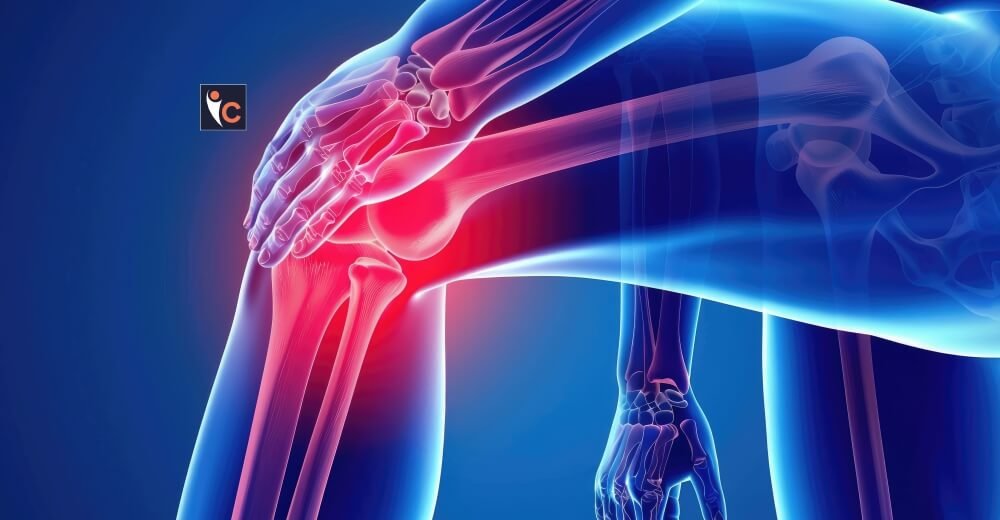Chronic health conditions are a growing concern in India, with increasing rates of diseases like diabetes, heart disease, respiratory disorders, and musculoskeletal problems. These long-term illnesses can significantly impair quality of life and impose a substantial burden on individuals, families, and the healthcare system. Amid this challenging landscape, physiotherapy emerges as a crucial intervention, offering a holistic and cost-effective approach to managing and mitigating the impact of chronic conditions within Indian communities.
This article aims to highlight the crucial role of physiotherapy in relieving the pain of chronic health conditions.
Understanding Chronic Health Conditions
Chronic health conditions are non-communicable diseases that persist for an extended period, often requiring ongoing medical attention and lifestyle adjustments. These conditions can arise from a combination of factors like genetic, physiological, environmental, and behavioural. In India, the prevalence of chronic diseases has been steadily rising, fuelled by factors such as rapid urbanization, sedentary lifestyles, and changing dietary patterns.
The Impact of Physiotherapy
Physiotherapy, a branch of allied health sciences, plays a pivotal role in addressing the multifaceted challenges posed by chronic health conditions. By employing a comprehensive approach that combines physical interventions, exercise therapy, education, and lifestyle modifications, physiotherapists empower individuals to take an active role in managing their conditions and improving their overall well-being.
- Musculoskeletal Disorders:
Conditions like arthritis, back pain, and osteoporosis are among the most prevalent chronic health issues in India. Physiotherapy interventions, such as manual therapy, exercise programs, and assistive device training, can alleviate pain, improve joint mobility, and enhance functional independence. By promoting physical activity and strengthening muscles, physiotherapists help individuals with musculoskeletal disorders maintain their independence and quality of life.
- Respiratory Conditions:
Chronic respiratory diseases, including asthma, chronic obstructive pulmonary disease (COPD), and lung cancer, are significant health burdens in India. Physiotherapists play a crucial role in managing these conditions through techniques like chest physiotherapy, breathing exercises, and pulmonary rehabilitation programs. These interventions aim to improve lung function, reduce respiratory distress, and enhance exercise tolerance, ultimately promoting better respiratory health and quality of life.
- Neurological Disorders:
Conditions like stroke, Parkinson’s disease, and multiple sclerosis can lead to impaired mobility, balance, and function. Physiotherapists work closely with individuals affected by neurological disorders, employing techniques such as neuromuscular re-education, gait training, and task-specific practice. These interventions help improve motor function, prevent secondary complications, and promote independence in daily activities.
- Cardiovascular Diseases:
Heart diseases, including coronary artery disease, heart failure, and hypertension, are significant contributors to morbidity and mortality in India. Physiotherapy plays a crucial role in cardiac rehabilitation, helping individuals recover from heart-related events and manage their conditions through tailored exercise programs, lifestyle modifications, and education on risk factor reduction.
- Diabetes Management:
With India being dubbed the “diabetes capital of the world,” physiotherapists are increasingly involved in the comprehensive management of this chronic condition. Through exercise prescription, education on healthy lifestyle choices, and strategies for preventing complications, physiotherapists empower individuals with diabetes to take control of their health and mitigate the long-term effects of the disease.
Promoting Community-Based Interventions
While physiotherapy interventions have traditionally been delivered in clinical settings, there is a growing recognition of the need for community-based approaches to address chronic health conditions in India. Community-based physiotherapy programs can offer accessible and culturally relevant services, empowering individuals and communities to take ownership of their health and well-being.
These community-based initiatives may include:
- Awareness and Education Campaigns: Physiotherapists can collaborate with local organizations and community leaders to raise awareness about chronic health conditions, promote preventive measures, and educate individuals on the benefits of physiotherapy interventions.
- Home-Based Rehabilitation Programs: By providing home-based physiotherapy services, individuals with limited mobility or those living in remote areas can access tailored rehabilitation programs, enabling them to manage their conditions within their familiar environments.
- Community Exercise Groups: Physiotherapists can facilitate the establishment of community exercise groups, fostering social support networks and encouraging regular physical activity among individuals with chronic conditions.
- Capacity Building and Training: Physiotherapists can train community health workers and caregivers in basic rehabilitation techniques, empowering them to support individuals with chronic conditions within their communities.
Conclusion
In the face of the rising burden of chronic health conditions in Indian communities, physiotherapy emerges as a vital component of a comprehensive healthcare approach. By addressing the physical, functional, and psychosocial aspects of chronic illnesses, physiotherapists play a pivotal role in improving quality of life, promoting independence, and mitigating the long-term impact of these conditions. Through community-based interventions and collaborative efforts, physiotherapy has the potential to empower individuals and communities, cultivating a culture of proactive health management and resilience in the face of chronic illnesses.
- Nisha Mehra
Read More: Click Here





